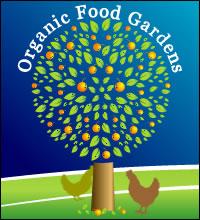Organic Food Gardens’ Blog
The main focus for our blog is to pass on information and tips about growing food using Permaculture methods, to help vegetable garden owners take responsibility for their garden and their own backyards allowing them to supplement their diet with real whole foods grown by themselves in a fully supported and natural way.

Fertilisers – Manures – Compost
Autumn is a good time to add organic matter to the soil and garden beds. Complete fertilsers Can be purchased in bags or one can make create compost from kitchen scraps, dry leaves, coffee grounds and garden clippings. Liquid FertiliserWorm farms provide worm...
Growing Potatoes
Potatoes can be grown from spring to autumn. They can be grown straight into ground soil or in planter boxes. Always use good healthy soil which can be a mix of premium potting mix and compost. Seed potatoes can be purchased from garden nurseries or if the potatoes in...
Native Stingless Bees
Native stingless bees, as the name suggests,don’t sting. Australia has many types of native bees. Native bees can be encouraged into a garden by planting lots of colourful flowering plants. Like the European honey bee which we are all familiar with, bees love and are...
